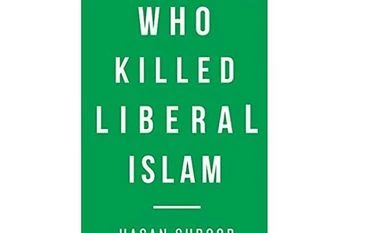In Who Killed Liberal Islam, Hasan Suroor argues that left-wing Muslim intellectuals paraded as the liberal heart of the community, the Muslims who write op-ed pieces and appear on TV to denounce Sharia, have “done more damage to the cause of Muslim liberalism than good.”
The book is a lament at the near-absence of liberal Islam. It is also a story of the author’s personal awakening to the fact that the voice of Muslim liberals, as endangered a species as they are, counts for so little among their co-religionists. One has to wonder why this should be the case — but then, Hindu liberals suffer similar delusions.
Mr Suroor argues while Islam is not resistant to reform, it has to be gradual. To imagine Islam will ever be secular is, however, a fantasy. He points to the failures of the secularisation projects in Turkey and Iran and the continued attraction of Wahhabism.
Islam is ubiquitous and a majority Islamic nation is unable to appreciate tolerance and pluralism, he writes. The author also says historical facts do not support the construct that Islam is, or ever was, a religion of peace.
If the author expresses hope in Islam’s ability to reform in the beginning of the book, by the end of it, he sounds despondent that the religion, despite being the fastest-growing in the world, is beyond redemption. He says the Islamic world has not contributed anything of note in science or literature in the past several decades.
He says Muslim communities in non-Islamic countries like Britain and India remain the most backward educationally and economically. As the author argues, the reason for it in India could be the discrimination that Muslims face, as the Rajinder Sachar committee documented in 2006.
But how is it, Mr Suroor wonders, that Hindus do better in the face of similar discrimination than Muslims in Britain? He says victimhood, perceived or otherwise, of Muslims only partially explains this, the truth being that they cocoon themselves from the outside world because plural societies challenge Muslim beliefs at every turn.
The author bemoans that a religion, once considered modern, has lost its ability to question. He says in the Arab world, its glitzy malls sell everything else under the sun but books, which is ironic since Islam lays great stress on reading and acquiring knowledge, “even if it means going to China”.
He complains that Indian Muslims have refused to learn from their mistakes, particularly in reforming Sharia. While many Islamic countries have reformed Sharia explicitly in relation to women’s rights, Indian Muslims see any suggestion as a conspiracy to meddle in their religious affairs. “Keep your hands off until the initiative comes from within the community, but 70 years after independence there is no sign of it from the community,” Mr Suroor writes.
Neither do Indian Muslims make common cause with minorities in Islamic countries to protest evil deeds done to them, says the author and points to the example of Asia Bibi. A Pakistani Christian, she was sentenced to death in 2010 on blasphemy charges. In 2018, a court exonerated her after a long legal battle, but lynch mobs were at her doorstep threatening to kill her again. Mr Suroor regrets there was not a word from Indian Muslims when, as victims of majoritarian prejudices, the least they could do was to show solidarity.
Mr Suroor, a former journalist, describes himself as a liberal Muslim who once was a part of the “cabal of self-styled modernisers” among Indian Muslims. He says he eventually realised how “delusional” he had been in believing that a deeply religious and socially conservative community would embrace a faith-baiting liberal.
The author says that poet Javed Akhtar and actor Naseeruddin Shah, two of the names to which the media gives space on Muslim issues, can never hope to become the voice of Indian Muslims. He says Indian Muslims need scholars like Sir Syed Ahmed Khan, Zakir Hussain, Maulana Abul Kalam Azad and the Ali brothers — Mohammad Ali and Shaukat Ali — who wore their beards and prayer caps with pride, but brought about gradual reforms. He appeals to liberals among Muslims and secular Hindus to look for and encourage such voices.
Although Mr Suroor argues his case convincingly, he writes with the empathy of an outsider, and the book is likely to find more readership among the kind of liberal Muslims whom he painstakingly berates, and among Sangh Parivar intellectuals who can sharpen their Muslim-baiting arguments. However, the author offers lessons, quite unwittingly, to the liberals among Hindus whose predicament is similar to that of their Muslim counterparts.
The continued political success of the Sangh Parivar is threatening to make the voice of Hindu liberals redundant at least in the electoral space. Among Hindu liberals, which Prime Minister Narendra Modi has taken to call the “Khan Market gang”, there is still no honest introspection to explain the political success of the Sangh.
Alleged rigging of EVMs, and large sections of Hindus turning rabidly intolerant of Muslims, are the two preferred theories to explain the post 2014-election results. Few, if any, Indian liberals, who either occupy leadership roles in the Congress and some opposition parties, are willing to concede that the problem could lie closer home. That their ilk, in politics as also other spheres of India’s social life, are unable to “communicate” with the common people of this country. That they are too urbane to counter the perceived earthiness of a Narendra Modi.
Who Killed Liberal Islam
Hasan Suroor
Rupa, Rs 595, 234 pages
Unlock 30+ premium stories daily hand-picked by our editors, across devices on browser and app.
Pick your 5 favourite companies, get a daily email with all news updates on them.
Full access to our intuitive epaper - clip, save, share articles from any device; newspaper archives from 2006.
Preferential invites to Business Standard events.
Curated newsletters on markets, personal finance, policy & politics, start-ups, technology, and more.



)